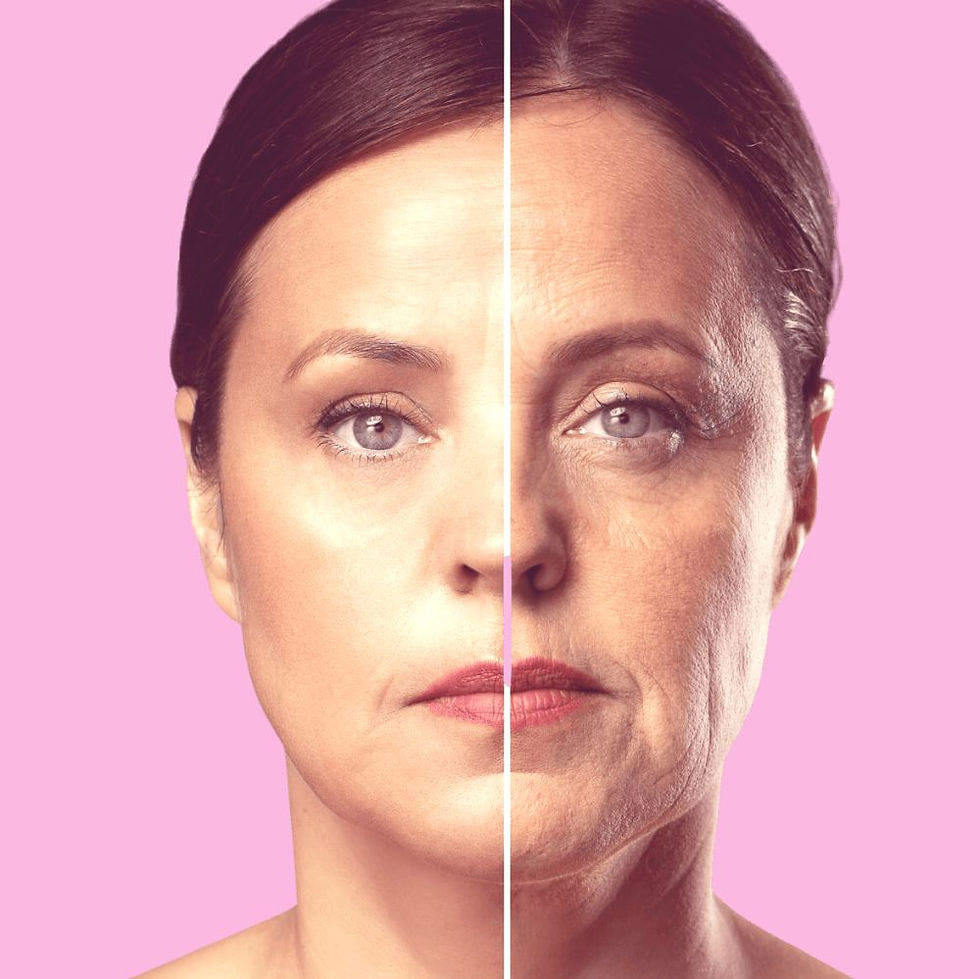
Can Delaying Glycation Give You Smoother, Younger-Looking Skin?
In the quest for eternal youth, many have explored a myriad of skincare routines, diets, and anti-aging treatments. But what if the key to smoother, younger-looking skin lies in delaying a process known as glycation? It's time to delve into the science of glycation, understand its impact on the aging process, identify its triggers, and explore ways to slow it down.
What is Glycation?
Glycation, a naturally occurring process within our bodies, might sound complex, but it's worth understanding. Simply put, glycation occurs when sugars in your bloodstream bind to proteins, forming harmful molecules called advanced glycation end products (AGEs). These AGEs wreak havoc on your skin, leading to premature aging.

How Does Glycation Influence the Aging Process?
Glycation is the silent saboteur of youthful skin. AGEs compromise the structural proteins that keep your skin firm and elastic, such as collagen and elastin. This disruption leads to visible signs of aging like wrinkles, fine lines, and sagging. Additionally, AGEs can damage blood vessels, contributing to uneven skin tone and reduced blood circulation, which can make your skin look tired and dull.
What Kicks Off the Glycation Process?
Glycation isn't solely a result of indulging in sweets. It's a natural biochemical reaction, but external factors can accelerate it. Here are some culprits:
Diet: A high-sugar diet can lead to increased blood sugar levels, fueling glycation. Processed sugars and high-fructose corn syrup are major contributors.
Smoking: Smoking not only damages your skin through oxidative stress but also increases glycation, speeding up the aging process.
UV Radiation: Prolonged exposure to the sun's harmful UV rays can trigger glycation, making sunscreen an essential part of your skincare routine.
How to Slow Glycation Down
The good news is that you can take steps to slow down glycation and maintain youthful skin:
Balanced Diet: Reduce your sugar intake and opt for a diet rich in antioxidants, vitamins, and minerals. Antioxidants combat free radicals, which play a role in glycation.
Advanced Skincare: Incorporate skincare products containing ingredients like retinoids, alpha hydroxy acids, and peptides. These can stimulate collagen production and minimize the appearance of glycation-related damage.
Sun Protection: Apply a broad-spectrum sunscreen daily to shield your skin from UV radiation, which can accelerate glycation.
Quit Smoking: If you smoke, quitting can significantly slow down glycation and improve overall skin health.
Anti-Glycation Supplements: Some supplements, such as alpha-lipoic acid and carnosine, may help inhibit glycation. Consult with a healthcare professional before adding supplements to your routine.
Hydration: Keeping your skin well-hydrated can reduce the effects of glycation. Consider using a moisturizer with hyaluronic acid, which helps retain moisture.
In conclusion: glycation is an intricate process that influences the aging of your skin. By understanding what it is, how it works, and what accelerates it, you can take proactive steps to maintain a youthful complexion. Remember, the road to smoother, younger-looking skin involves a combination of a balanced diet, advanced skincare, sun protection, and a healthy lifestyle, prevention is the name of the game.


Comments